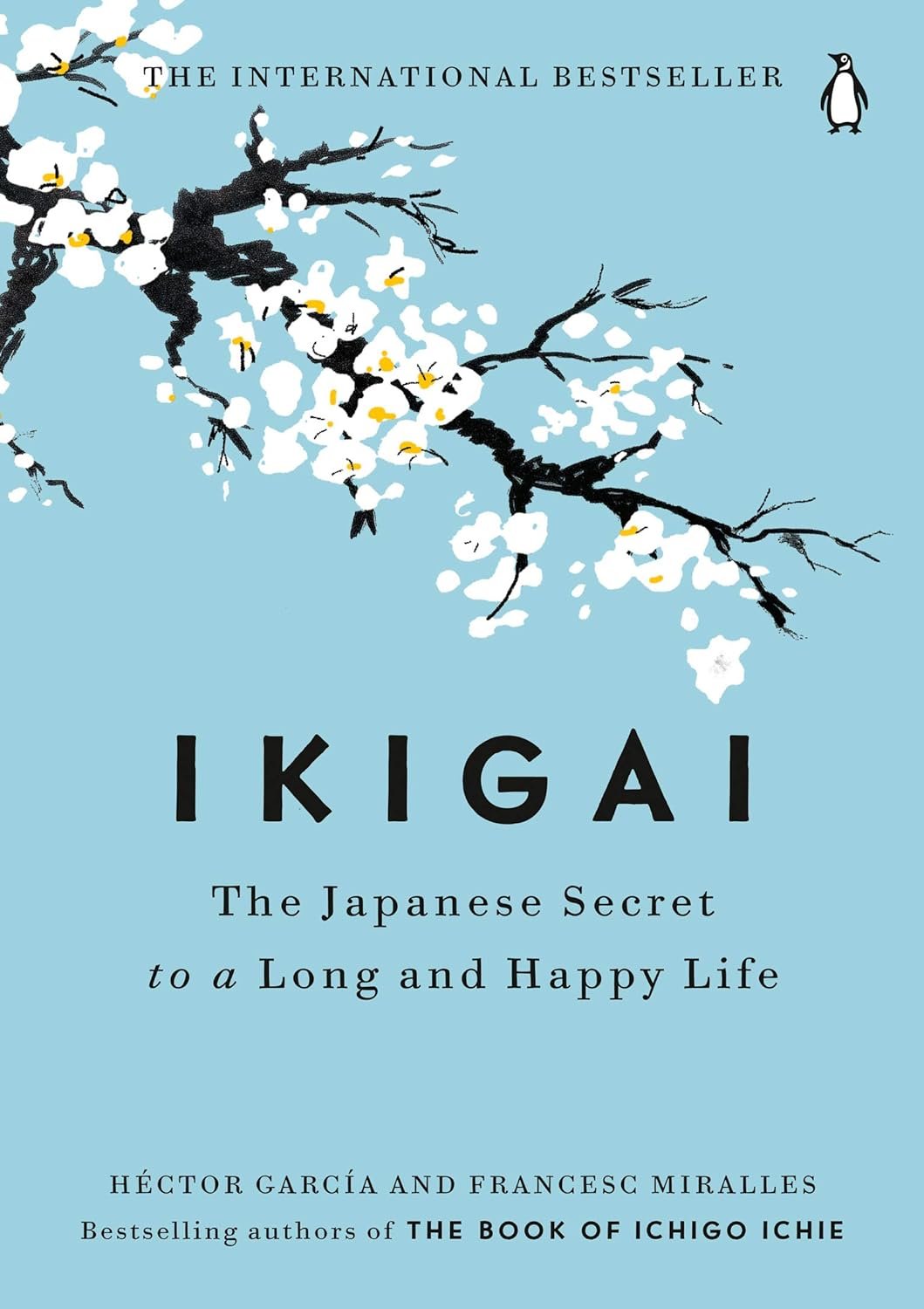I can’t think of a better way to end the year than learning about ways to live a long and happy life. I read Ikigai: The Japanese Secret to a Long and Happy Life by Francesc Miralles and Hector Garcia. Miralles is a writer, essayist, editor, musician, and travel enthusiast who was born and raised in Barcelona, Spain.
Garcia was born in Calpe, Spain and after living in Bern Switzerland he visited Japan. He was so taken by the people and culture he has lived there for twenty years. He has been a software engineer, amateur photographer, and now he is an author, blogger, and aspiring philosopher.
Miralles and Garcia knew of each other by reputation, but first met in person in Tokyo when a mutual acquaintance brought them together. The resulting friendship led them to the joint project which this book.
Ikigai is a Japanese concept that means your reason for being, your life purpose, or your bliss. The Japanese believe everyone has an ikigai. People born on Okinawa, the island with the most centenarians in the world, believe, “our ikigai is the reason we get up in the morning.”
Miralles and Garcia were curious about the lifestyles of these centenarians. What did they have in common with other people in the five so-called Blue Zones who live longer, healthier, and happier lives than everyone else on the planet?
The five Blue Zones are:
1. Okinawa, Japan
2. Sardinia, Italy
3. Loma Linda, California
4. The Nicoya Peninsula in Costa Rica
5. Ikaria, Greece
Scientists studying the habits of people in these five Blue zones noted that diet, exercise, finding a purpose in life, and forming strong social bonds were important factors contributing to their longevity.
Miralles and Garcia tested these findings by interviewing and spending time with centenarians on Okinawa. The people they met were friendly, happy, socially engaged, active, and had a strong sense of self. The Japanese have no word for retirement. Most continue to work as long as they are able and instead of staying home and taking it easy, they will pursue hobbies with the same ethic they applied to their work life.
Why do they continue to work? In Japan, all workers are respected and valued. They receive a greater sense of satisfaction from doing their job well. The ability to slow down and focus on one task lets them be more productive as opposed to multi-tasking. It allows them to find their ikigai.
According to Miralles and Garcia, ikigai is different for everyone. Your reason for being might be helping others, being a good parent, gardener, artist, or factory worker.
There are, however, rules/guidelines for living a long and happy life and ikigai. These include:
1. Stay active – find purpose in what you do and keep setting goals for yourself.
2. Take it slow – Don’t rush through life. Be fully present and appreciate each day.
3. Don’t fill your stomach – Stop eating when your hunger is satiated, but before you’re completely full.
4. Surround yourself with good friends.
5. Remain active – You don’t have to run marathons, but keep moving all day long. Sitting is the enemy of longevity.
6. Smile – I know, I hate it when people tell me to smile, but give yourself reasons to smile by being grateful for each day and the people you interact with. Your smile may be the best medicine they receive.
7. Reconnect with nature – Get outdoors whenever possible, have a garden, and if possible have a pet.
8. Give Thanks – be grateful for your health, your family, your history, the food you eat, and the beautiful Earth it comes from.
9. Live in the moment – Don’t live in the past and beat yourself up for the mistakes you made or mourn your losses. Don’t worry about things that might happen. Live in the present and treasure each day, the lessons you’ve learned, the love you’ve known, and the adventure of now.
10. Follow your ikigai – Find what you are passionate about and do it. If you don’t know it yet, treasure the journey to find your ikigai.
There is so much more to this book than these ten rules. Miralles and Garcia discuss diet, exercise, spirituality, attitude, and the mind/body connection so many of us are missing. They also share the philosophies of several centenarians they interviewed and insights into Japanese culture.
One thing that stands out for me is the differences between Western beliefs about work and leisure time. Why do we have this incessant need to multi-task and an obsession with status?
I recommend this book to anyone who is trying to find a reason to be excited about life and anyone who wants to live a happier, healthier, and longer life. That pretty much covers everyone









